Sitting vs sprinting. Clicking buttons vs passing batons. Despite the differences, esports pros should be considered athletes. Here’s why.
Esports, short for electronic sports, represents the competitive side of gaming where players worldwide compete in various video games. The robust industry has been producing many professional players, with many of them going through intensive training and methods to survive in the scene. High-value transfers and contracts are also a significant part of the industry. All of these also perfectly describe the sports industry.
The field in question aside, these two industries are similar in nature. Down to the challenges that both athletes and esports players face. But the question remains, are both of them one and the same, and should esports players be considered athletes?
The short answer is no. Technically, esports players are not considered athletes because they do not fit the definition. However, many organizations and countries in the world recognize esports players as athletes, and there are tons of arguments to back why they should be considered one.
Here is a full breakdown of why esports players and professionals should be considered athletes.
Esports is recognized as a sport
A major portion of the world has yet to welcome esports as an official sport. Especially in countries where it's not popular, the esports industry is just another small niche. But there is no denying that esports has blown up massively in the past decade or so, to the point that it has been picked up in the government’s radar of multiple countries.
In 2000, South Korea recognizes esports as an official sport, followed by China and South Africa. Other countries also jumped on the bandwagon to welcome esports. These countries include Russia, Italy, Nepal, Ukraine, USA, Finland, and Germany.
A month after the USA made esports an official sport, a League of Legends player, Danny "Shiphtur" Le, earned a visa that acknowledged him as an internationally recognized athlete.
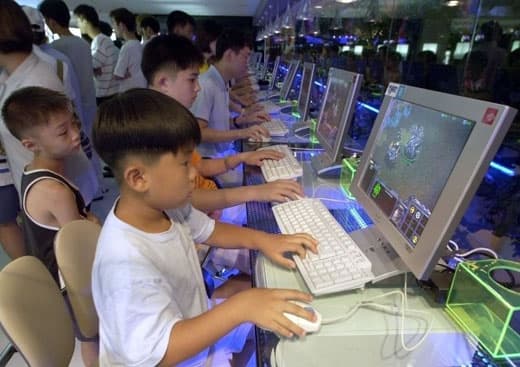
Image Credit: es.me
On top of countries giving esports recognition, the world’s prestigious organizations are also giving credit to the ever-growing esports industry. In 2021, the Olympic Virtual Series sees the debut of esports as a demonstration event. For the Asian Olympics in 2023, eight esports titles are going to be featured and medals are to be awarded to the winners. The featured titles are FIFA, PUBG Mobile, Arena of Valor, Dota 2, League of Legends, Dream Three Kingdoms 2, Hearthstone, and Street Fighter V.
Sports is an ‘athletic activity’ (per Dictionary.com) and this means that these governing bodies which recognize esports as sports, consider esports players athletes.
The definition of an athlete could extend to esports
From a technical aspect, esports players are not athletes. This is the main and strongest argument which simply says esports players do not fit the athlete definition. For example, the Oxford dictionary, defines athlete as “a person who is proficient in sports and other forms of physical exercise.” From this definition, many people reject the thought of esports players being called athletes due to their lack of ‘physical exercise’ in the field.
But the meanings of words change over time. Dictionaries are supposed to describe what a word currently means, and not what it is supposed to mean. And therefore, with the evolution of esports and how it is gradually being recognized as a sport, the definition of athlete could change.
John Kelly, senior editor at Dictionary.com explains the function of a dictionary, "The work of a dictionary is more than just adding new words. It's an ongoing effort to ensure that how we define words reflects changes in language — and life."
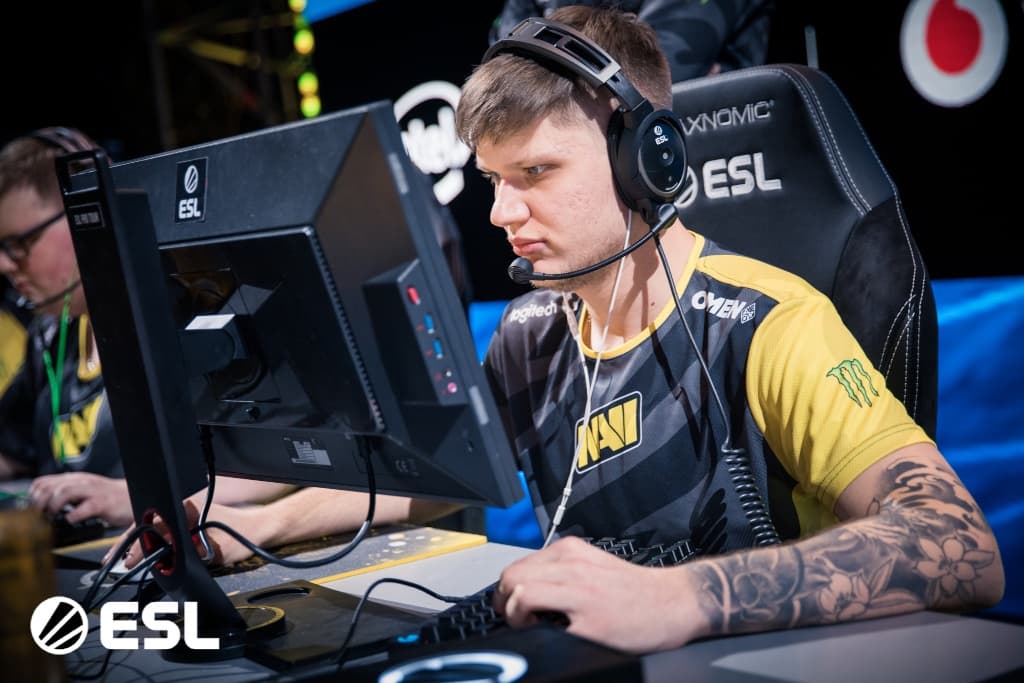
Credit: ESL
Physical activity is an unreliable measure to sports
What if we still want to go for the technical way? Because at the end of the day, if esports players do not fit the definition of an athlete, then the case might be closed.
But even so, there are still plenty of reasons we should consider esports pros as athletes. Let's go back to the bit where esports is not a 'physical activity.' Most will say that the debate is over and done with because esports players only sit in front of the screen and click buttons - which, to be fair, is not wrong. Esports professionals’ physical demand is indeed significantly lesser than sports athletes. But not every sport is as physical as one would imagine.
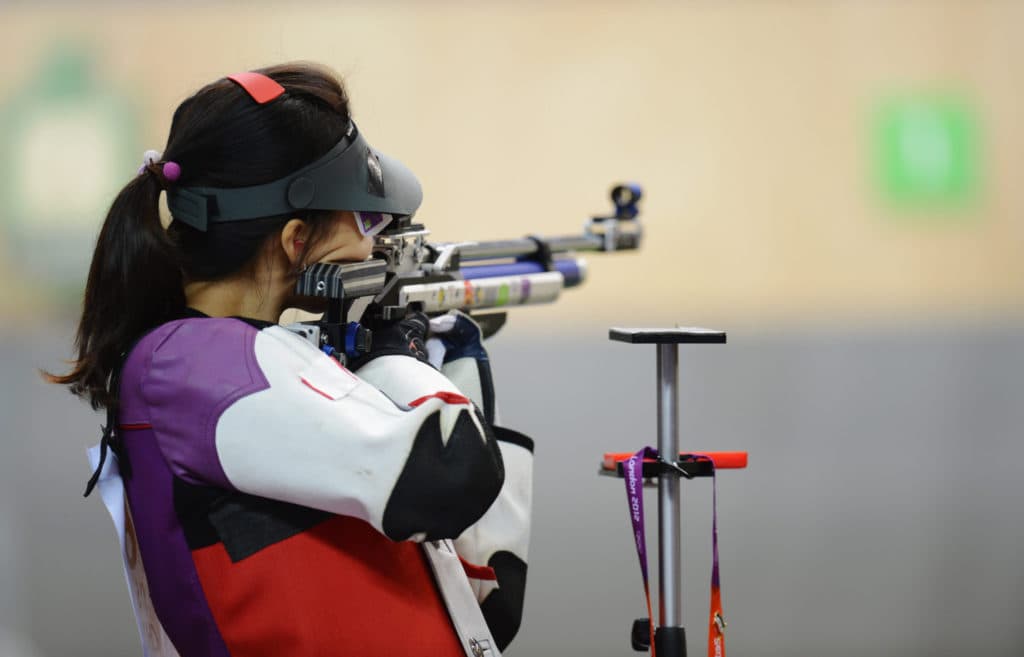
Image via Paris 2024
Take a look at shooting as a sport. Shooting requires skill in precision, accuracy, and speed when handling ranged weapons. These skills require very little physical work, especially compared to other sports like football or basketball. Despite that, shooting is recognized by the Olympics, the world’s foremost sports competition. The Olympics also recognizes archery, golf, and bowling - all of which are known as sports that require minimal physical exertion from their players.
Due to this wide spectrum of physical activity in sports, there are instances where both worlds collide.
Esports overlap with sports
Let’s look at the extreme end of the sports spectrum. A few of them are Chess and Poker. The International Olympic Committee recognizes Chess as a sport. On the other hand, the Oxford dictionary defines Poker as a sport.
These two games arguably have the least physical demand - with them categorized as mind games. And with the growth of technology, these traditional mind games have evolved. Chess and Poker now have the flexibility to become both real-life games and electronic games which means both are simultaneously sports and esports.
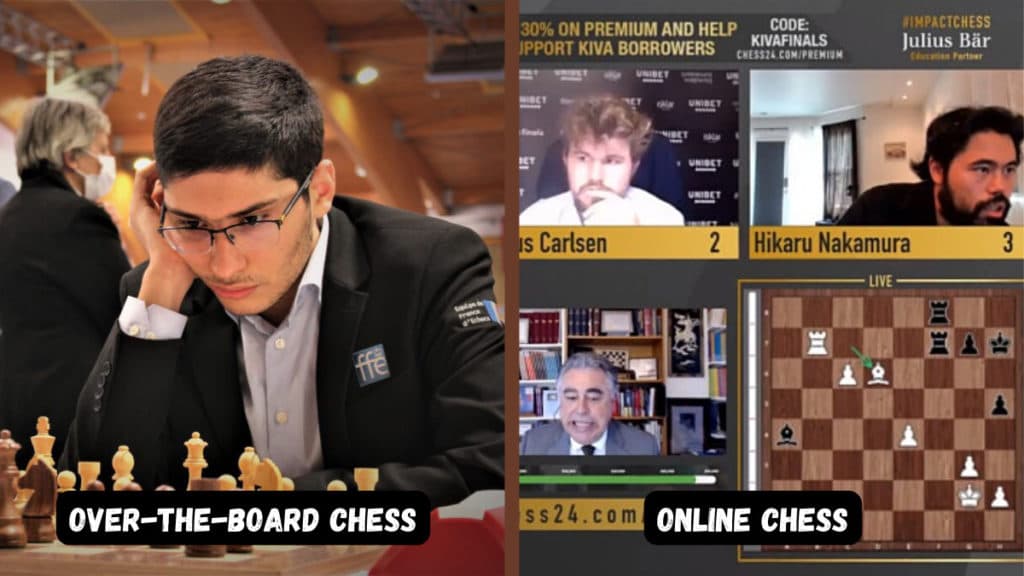
These overlaps and inconsistencies suggest the technical answer, which is the one derived from dictionaries might not be solid. Because in the end, there are way too many variants of sports and they have a wide range of physical demands. And whether esports is a part of sports is only a matter of where you draw the line.
Basketball player, Shaq says esports pros are athletes
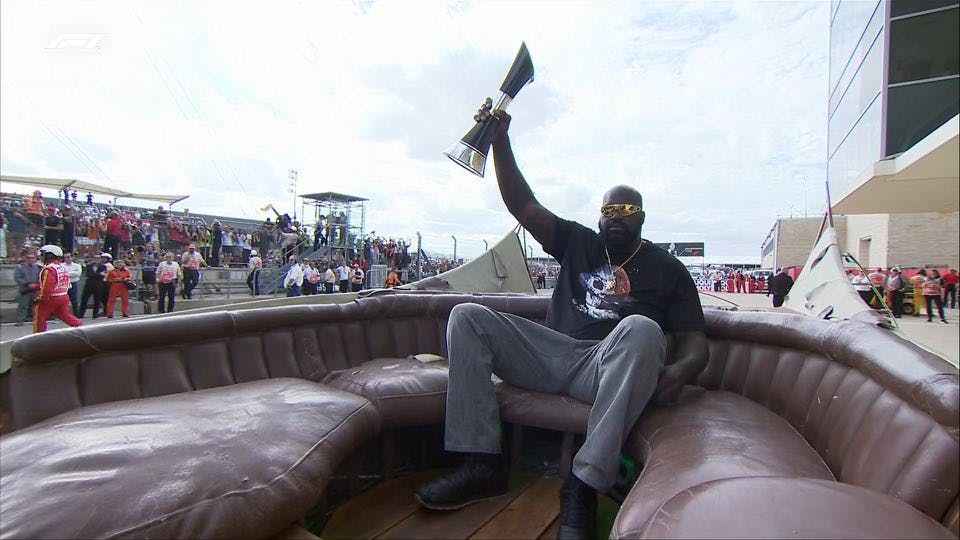
In an argument discussing esports players and athletes, whose opinion has the highest credentials if not an athlete himself? Shaquille O’ Neil, one of the best basketball players of all time is on the positive.
In an interview with esports reporter, Jake Lucky, Shaq was asked if he considers esports players as athletes. He did not hesitate to agree. “Athlete means different things. But athlete means [mental]."
The former basketball athlete told the story of when he raced with American’s professional race car driver Dale Earnhardt. “I did a show called ‘Shaq Versus’ and when I went to race with Dale Earnhardt, that was the hardest sh*t I’ve ever done in my life. I’m sitting in a car and we were out there and my body was so sore.”
He then recalled the time he went swimming with American competitive swimmer, Michael Phelps, also the most successful Olympian of all time. He claimed that it required heavy mental strength and drew parallels to compare it with esports, stating that is the reason esports players have a short life shelf.
“When I went to swim with Michael Phelps, 15% of the game is physical and everything else is mental. So the things that [esports players] go through..That’s why [esports players] don’t really have a long “life-shelf”, I think it’s 3-5, or 5-6 years. You know same thing with NBA and NFL. So yeah, [esports pros] are athletes.” he concluded. “If you guys say you are athletes I believe you because I can’t do what you do.”
Related articles
Similarities with traditional sports athletes
Esports and sports, despite looking like polar opposites are actually very similar. Both fields are competitions that require certain types of skills, one more physical than the other. But the main similarity is both esports players and sports athletes require strong mental endurance.
A famous baseball catcher from the early century, Yogi Berra once said, "Baseball is 90 percent mental. The other half is physical."
And Shaq suggested the same when he talked about his swimming session with Michael Phelps, suggesting that 'it’s all mental.'
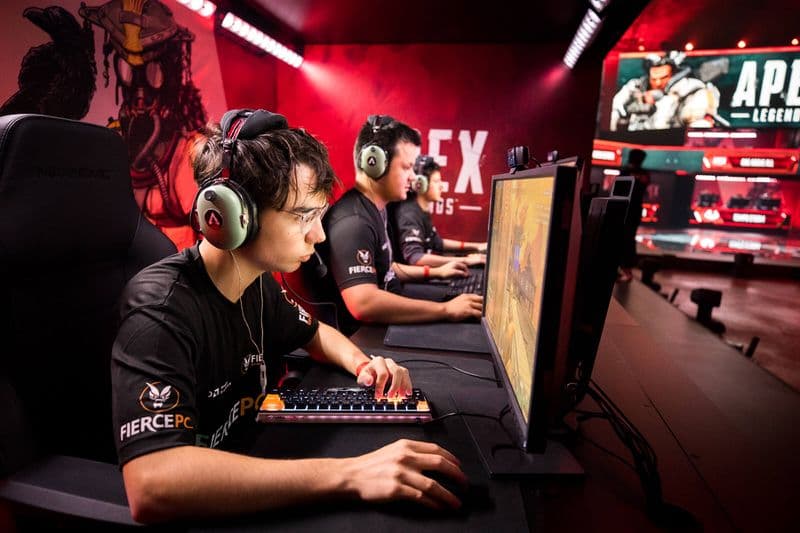
Credit: Turtle Entertainment
A study also shows that the mental preparation of top esports players and Olympic athletes may be the same. It states, “High-performing esports professionals may require the same mental stamina it takes to be a top Olympian."
The study observed the performance of elite professionals across different games including Overwatch, CS:GO, Rainbow Six: Siege, Dota 2, and League of Legends. "Everything we see in sports psychology interventions that work with traditional sports is likely going to work with esports athletes," it mentioned. Interestingly, one of the recent victories in esports saw this proven.
In October 2022, a Western European Dota 2 team, Tundra Esports joined forces with a sports psychologist to work on their mental preparation prior to The International 11. In 6 months, their efforts brought them their biggest achievement to date, becoming the champions of TI.
These prove that the defining factor in high-level sports might just be mental endurance, putting them on the same page as esports. These push the narrative that esports players are indeed athletes.
Mental warfare similar to athletes
Esports and sports require tough mental durability and we have time and time again heard of the term 'healthy body healthy mind." For players to achieve high mental durability, they must be athletic.
Let's first take a look at how intense brain activity during mind games can affect the human body similarly to what high-level sports do.
In 2018, Polar, a company that tracks heart rates observed Chess players during a tournament. The company revealed that 21-year-old grandmaster, Mikhail Antipov had burned 560 calories in two hours of playing Chess. Meanwhile, a competitive Tennis player would burn the same amount of calories in a singles match for one hour.
Chess grandmasters, throughout tournaments, have burnt significant calories all throughout those ‘sitting periods’ because of their brain activity. A study by Robert Sapolsky suggested that Chess GMs' stress responses to the game are on par with what elite athletes experience. While playing in a tournament, the players may have tripled breathing rates, elevated blood pressure, and more muscle contractions - which leads to a possible 6,000 calories burned in a day.
The Chess grandmaster (GM) who trains like an athlete
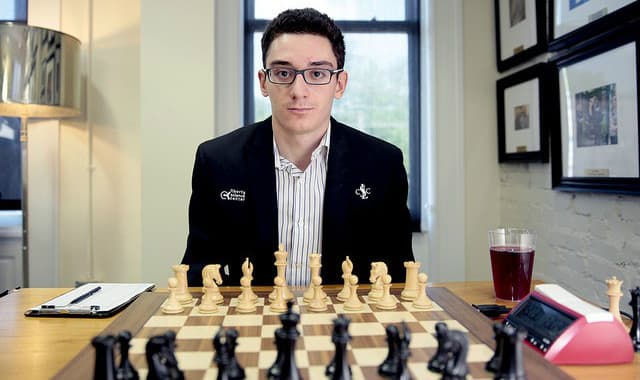
The energy and fitness it requires to survive high-level Chess tournaments call for an athletic lifestyle. A lot of GMs have adapted to athletic routines. And if you see them training pre-Chess tournaments, you’d easily mistake them for sports athletes.
Fabiano Caruana, one of the world’s top Chess players, has an extreme physical routine that consists of a 5-mile run, an hour of tennis, half an hour of basketball, and an hour of swimming.

Credit: ESPN
This mind-blowing routine works to build his mental durability for Chess tournaments and certainly contributed to his sharp performances. In April 2020 (publish date of the interview) Caruana was 2nd on the world Chess leaderboard, trailing closely behind Magnus Carlsen.
The studies surrounding Chess and its athletes show how intense brain activity can affect the body viciously, similar to what sports athletes face. It is convincing enough for us to understand the high physical requirements for a high-performance mental game.
The future of esports requires strong athletes
High-level Chess preparations already sound so overwhelming, but what about games that are more complex than Chess? Some esports titles have higher complexity than Chess which would mean players need a stronger mind.
To put this into perspective, Chess itself already has endless possibilities with only 32 pieces and 64 squares. Imagine a game like League of Legends that holds more than 140 playable characters with unlimited “squares” to move. Not only that, but it has myriad other factors such as items, units on the map, team factors, and more.

On top of understanding the game, players have to be skillful to the core. They need fast reflexes, good memory, and sharp instincts - all of this throughout the game’s duration which averages 20 - 35 minutes. The mental stamina that it takes is enormous and it’s no wonder that it could consume the body just as any other extreme sport would.
Adding the cherry on top, esports is constantly changing. Unlike Chess which is an absolute game with the same pieces and same movements, esports games usually shift. They constantly evolve with tweaks to certain elements, sometimes even changing the foundation of the game. Due to this, learning and studying would possibly never stop for esports players.
However, the esports industry might not yet be mature enough for the routines that elite athletes go through. It is indeed a young industry, and most esports are still catching up to reach the level of stability and discipline other sports have achieved.
But when the industry ripens in the future, the increasing level of competition might see the need for stronger training. Thus, it means the future of esports potentially requires powerful athletes.
Conclusion
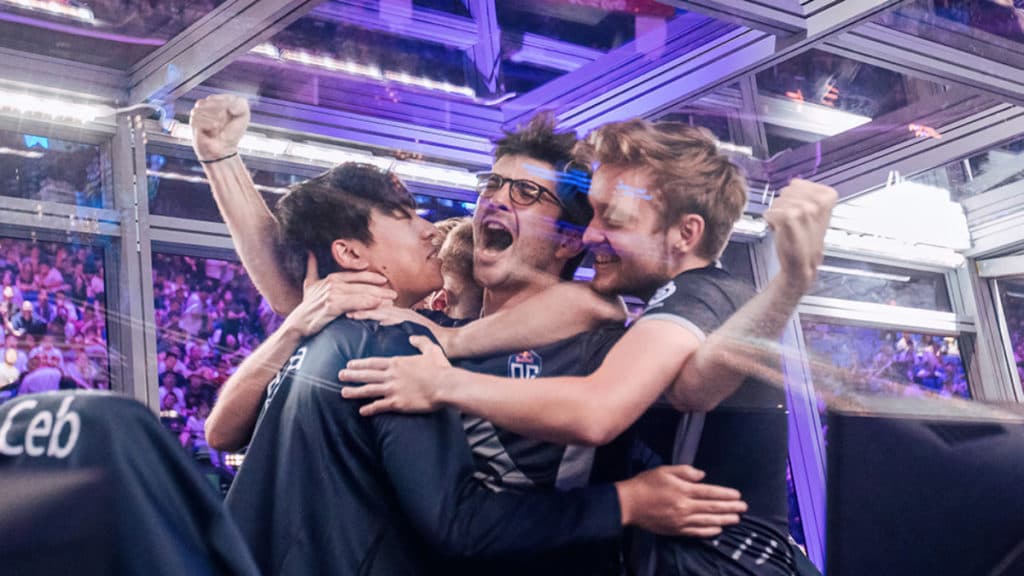
There is no denying that the two concepts, esports and sports, massively overlap and they are both more similar than they are different. Organizations around the world are shifting the line, expanding the industry beyond technicalities to include esports as part of the sports family. So why shouldn’t we?
However, it needs to be mentioned that there is no apparent desire in the esports industry for the world to recognize esports players as athletes. To be frank, nobody cares whether they are officially athletes or not. And it is likely that most of the gaming community thinks esports players are not athletes. Mainly because of the normal assumption that esports are not physical enough.
Nevertheless, we need to give credit where it’s due. If esports players have skills in certain games, face the same tenuous pressure and churn out the same effort that athletes do, it’s only rational to put them in the same frame. And therefore, the world should consider esports players as athletes.
If you enjoy features and guides regarding esports, stick around our site!